Of all the West End’s unloved venues the loveliest is the Arts Theatre. It specialises in creaky off-beat plays like Only Our Own by Ann Henning Jocelyn. We’re in Connemara, in the west of Ireland, in the early 1990s. A family of Anglo–Irish toffs are struggling to cope with their status as universal pariahs. Wherever they go they’re out of place. Catholic Ireland resents them. In England, their spiritual home, they feel like aliens.
Titania, a narky teenager, is baffled by her parents’ religious prejudices and she merrily announces her involvement with a boozy local bumpkin. He’s Catholic, naturally. This prompts a bombshell of a speech from Titania’s grandmother, Lady Eliza, who witnessed a village insurrection in 1922 when she was just 11. A gang of rebels axed their way through the main doors of the mansion at midnight. They decapitated her Pekingese with a shovel, shot her brother in the face, irrigated the floors with petrol (‘our petrol from our garage’), and turned the gilded fuse into a fireball. The killer detail is that she knew them all by sight. They were locals who visited the house every Christmas for mince pies and a tumbler of his lordship’s sherry.
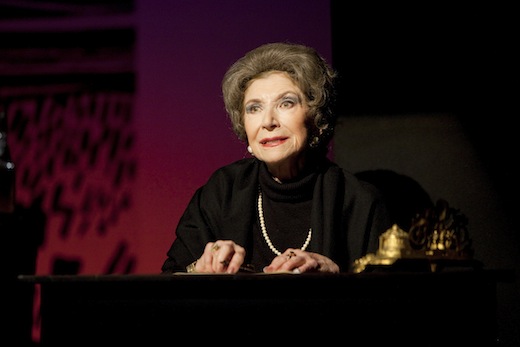 Only Our Own Photo: Ludovic des Cognets
Only Our Own Photo: Ludovic des Cognets
This understated and immensely powerful speech sets the tone for a play whose stately rhythm and unshowy manner are deceptive. It tackles a huge theme with dynamic artistry: the long feud between Catholics and Protestants over 90 years. We watch as insane violence evolves into passive, uneventful loathing, and then into tentative friendship and finally into openness and reconciliation. Countries with a recent history of sectarianism would flock to see this play. In London it lacks immediacy because at the moment we seem to be getting along all right, fingers crossed. On tour in Ireland, north or south, it’s sure to be a hit.
The Hope Theatre in Islington is a venue for try-out plays that seek a longer run at the King’s Head, up the road. Cleopatra by Gareth Cadwallader is based on this little-known fact. ‘Cleopatra was living in Rome on the day of Caesar’s assassination!’ he says in his programme notes, wisely adding the exclamation mark. What an opportunity to create a play that Shakespeare and Shaw overlooked. Cadwallader’s writing is pert and very occasionally witty, but there’s far too much of it. Great screeds of forgettable dialogue spool out in all directions.
The setting is a tumbledown mansion on the outskirts of Rome where Egypt’s queen, with her priestesses Charmian and Iris, are trying to ignore their captive status and to maintain the trappings of a royal court. Their big hope is that Caesar will show up for lunch and perhaps a spot of gymnastics on the divan afterwards. What they don’t know is that he’s busy at the Capitol being stabbed to death. This uncertainty is the only dramatic pivot in the play and the script makes no attempt to capture the grandeur or the epic peril of Rome during one of the most turbulent days in its history. Scruffy modern-day visuals drag the show down. Tossed sheets of foolscap cover the floor. Wormy furniture leans against half-daubed walls.
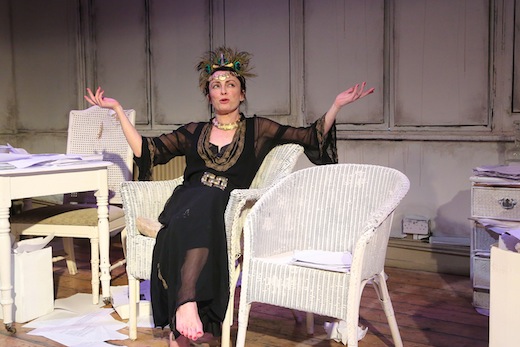 Shelley Lang as Cleopatra Photo: Andreas Grieger
Shelley Lang as Cleopatra Photo: Andreas Grieger
The cheap costumes are a good fit but not for these actors. Mark Antony (Mark Edel-Hunt) arrives like a boy-band sex pest with octopus hands and a bedsit smirk. The world-conquering hero is dressed, for some reason, in a Next suit and a tieless white shirt that make him look like a porky intern hoping to land a cashier’s job at the Halifax. Cleopatra, played by Shelley Lang, resembles Monica from Friends reinvented as a love-starved stud magnet prowling the Mediterranean in a beaded kaftan. Lang at least has talent. Her beauty and her tigerish sexuality are the highlight of the show, but Cadwallader’s skittish writing forces her to giggle and wheedle like a 40-year-old virgin at a hen party. Lang’s eccentric speech patterns are crammed with wonderful peculiarities. She was raised in Glasgow and in Western Australia so her accent veers unpredictably between Kirsty Wark and Kylie Minogue with the occasional stop-off at Judi Dench.
She’s well supported by slinky Alex Bedward as Iris and watchable Marianne Chase as Charmian. Richard Mason’s Octavius is the standard Augustus-in-waiting: a gauche, calculating, cold-eyed yuppie with a sense of entitlement that stretches from the Atlantic to the Black Sea, not unlike the empire he later ran. Cleopatra’s secretary, Mardian, is a slab of stiff-jawed introspection played by Jordan Mallory-Skinner. Handsome chap, Mallory-Skinner, but he acts ‘stillness’ to the point where he’d fail to register on a heat-scanner in the aftermath of a theatre collapse. The audience, I should add, enjoyed this show far more than I did. Cadwallader deserves a second shot. He also deserves a tactful, determined editor with a pair of scissors sharpened to a fine and glinting edge.
Got something to add? Join the discussion and comment below.
Get 10 issues for just $10
Subscribe to The Spectator Australia today for the next 10 magazine issues, plus full online access, for just $10.
You might disagree with half of it, but you’ll enjoy reading all of it. Try your first month for free, then just $2 a week for the remainder of your first year.

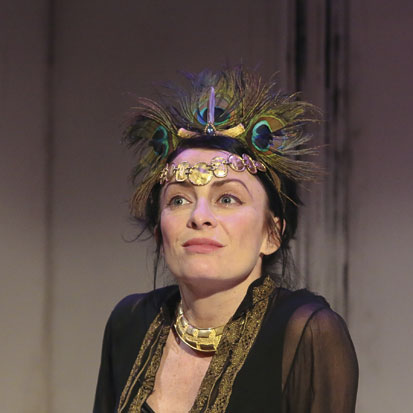


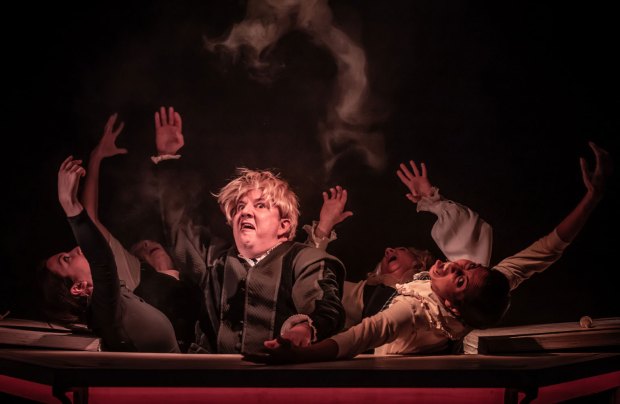

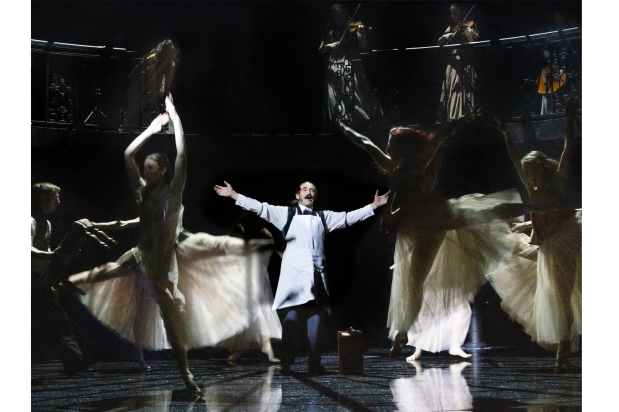
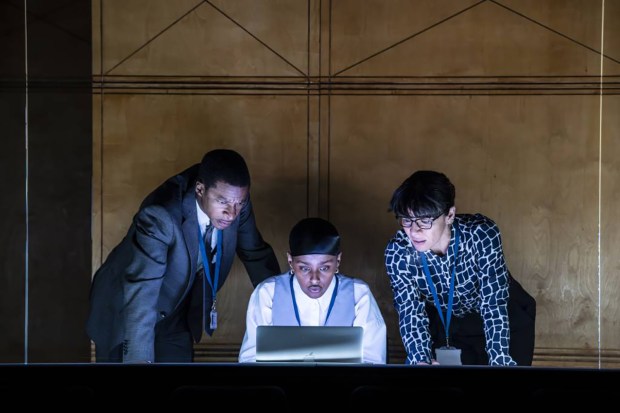






Comments
Don't miss out
Join the conversation with other Spectator Australia readers. Subscribe to leave a comment.
SUBSCRIBEAlready a subscriber? Log in